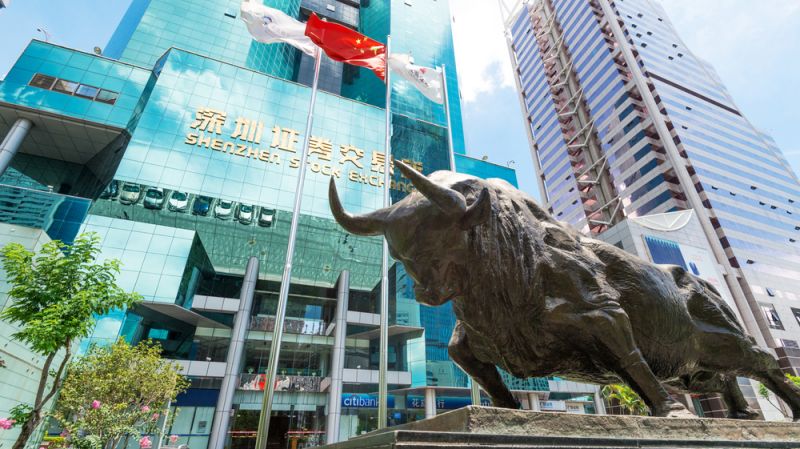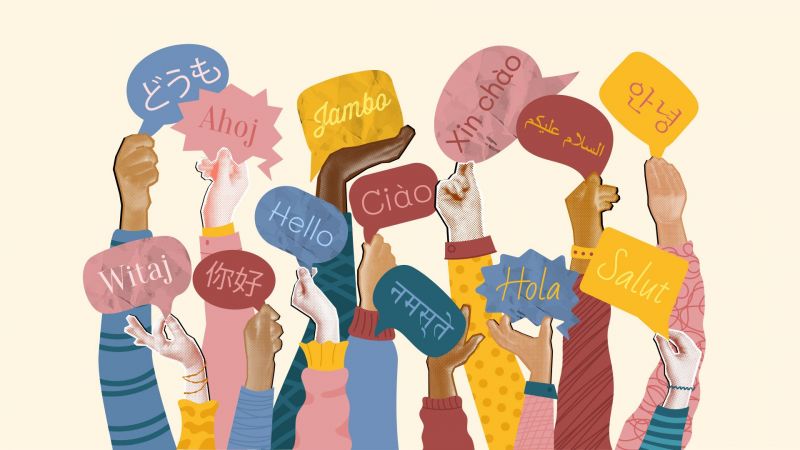All-World Training for Global Business
Budding finance stars prep for the opportunities to come — wherever they may be

In many ways, the Olympic Games are a reflection of today’s globalized economy. Athletes, having trained and competed for years in Rome, Cairo, New York, and all points in between, gather to test their mettle at the world’s ultimate contest. The best of them show resiliency, intelligence, and, above all, adaptability.
So it is fitting that Wei Wang, director of the Renmin-Queen’s Master of Finance program, uses the Olympics as a metaphor to describe the environment graduate students of business will enter and the new skills needed to compete. Wang argues that today’s leaders should not only have the know-how to run a variety of different companies but also the skill to do so on a variety of continents.
“For a graduate seeking opportunities not only in finance but in general business, one has to have a global perspective,” says Wang, Distinguished Faculty Fellow of Finance at Smith. “You can’t just assume that others will think the way you do. People we work with will come from a different culture and background, and a manager today has to know how to adapt to a different environment to be successful.”
This is why many top graduate programs in business, including the Renmin-Queen’s program, now have a global collaborative component, he says. “Ultimately, I think you’re going to see programs running on three continents.”
“For a graduate seeking opportunities not only in finance but in general business, one has to have a global perspective. You can’t just assume that others will think the way you do”
Students in the Renmin-Queen’s program attend weekend and evening classes at Renmin University in Beijing, where faculty from both universities train them in finance and general management. This is for a simple reason: employers demand both. As an example, Wang points to a graduate who might be working for an Italian company such as Prada who wants to raise equity financing in Hong Kong. To do this successfully requires knowledge of the local Chinese financial markets and the skill to negotiate with a counterpart in Europe.
These cross-listings are growing increasingly common, as European companies list their shares in Asia and Asian companies list their shares in the United States and Canada.
Companies need graduates who understand both sides of the negotiation table. This is particularly important now that the world’s financial markets are so integrated and capital flow in and out of many countries is fluid. “A single investor might hold stocks listed on the Toronto Stock Exchange, a U.S. Treasury bill, real estate assets in China, and also be running a business in Hong Kong,” Wang says. “All these assets seem unrelated, but the link is the single investor. So whether we want to accept it or not, the markets are integrated.”
Sea Turtles
The educational collaboration between China and Canada that led to the launch of the Renmin-Queen’s MFin in 2013 is a microcosm of today’s international business environment. A variety of stakeholders were involved, including both universities and the Chinese and Canadian governments. The negotiations were complex but the work ultimately bore fruit, with Canada’s Governor General attending a signing ceremony between the two schools.
Initially, Wang thought the program would primarily serve Chinese students who wanted to study at Queen’s. Increasingly, however, the program attracts Chinese expatriates living in Canada who want to return home to work in the world’s second largest economy. Currently, 90 percent of the MFin-Beijing class achieved their first degree in Canada, with close to 60 percent of those students having studied business. Wang refers to these Chinese expats returning to China from Canada as “sea turtles.”
“These are students,” he says, “who are Chinese, who were born in China and have Chinese citizenship, and who came to Canada to study. Now they’ve realized that with the market reforms in China and the liberalization of the economy, there are many opportunities. So, like sea turtles, they want to go back.” He says the Renmin-Queen’s MFin offers them a soft way to re-integrate into the Chinese business landscape while continuing to develop global skills.
Bridge Building
For Wang, this bridge being built between China and Canada by the program is one of its key strengths. Of the 70 students the program has recruited in the last three years, more than 50 continue to work in China, expanding the alumni network. Each day, Wang points out, the bridge gets stronger.
Students have also launched the Canada-China Youth Association, helping fellow students transition to the Chinese environment. Networking events promote an understanding of Chinese customs, business, and laws. With students having night and weekend classes, their days are free to explore the local culture.
Wang revisits the Olympics metaphor to explain the value the Renmin-Queen’s MFin offers. “I’m not saying that if you get to the Olympics, you’ll necessarily win a gold. People are born with different innate talents. But what the program teaches you is how to best handle the tool to compete in the first place.”
And the tool is unquestionably a global one, teaching cultural sensitivities alongside the technical skill of finance. “In the next five years,” Wang says, “we’re going to have hundreds of alumni working in China in very important positions, and they will all be carrying a Smith flag.”
— Luke Fiske





